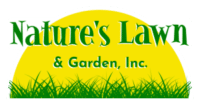The Importance of Pollinators
June is National Pollinator Month!
Now is a great time to bring awareness to the significant role of pollinators in our food chain, their current plight, and to educate folks on how to support and protect them.
What are pollinators?
Most people think of bees when they consider pollinators, and with good reason! Honeybees are the single most important pollinator species across the globe! When bees buzz from flower to flower in search of nectar, they transport pollen, helping plants to reproduce and bear fruits. But bees aren’t the only pollinators – butterflies, beetles, birds, and bats all play an important role in the process. Even the wind can be a pollinator! Plants and pollinators evolved side by side over millions of years, resulting in physical adaptations in both. Plants developed complex ways to attract pollinators, while pollinators evolved with specialized traits and behaviors that boost their pollination efforts. Both plants and pollinators benefit from pollination.
Pollinators are essential to the health of our ecosystem, but they are at risk.
Thousands of plants, including ⅓ of all the food humans eat, rely on pollinators to thrive. But the number of pollinators is declining around the world, mostly due to habitat loss and the inappropriate use of pesticides.
Ways You Can Help
Plant a Pollinator Garden: Pollinators need a constant food supply. You can help support them by planting native flowers that bloom at different times throughout the season; include varying sizes, shapes, and colors to attract different pollinators. Asters, milkweed, coneflowers, and sunflowers are common throughout the country, but you’ll want to do a little research about native species for your particular ecoregion before you plant: https://www.nwf.org/nativeplantfinder
Early spring blooms like dandelion and clover can help some pollinators re-fuel after hibernation. Similarly, late fall blooms provide the extra nutrition they’ll need for southern migration.
Create a habitat for pollinators: Shrubs and trees provide great protection for nesting pollinators. You can also offer pollinators a drink with a birdbath or by placing a shallow dish of water on your deck or windowsill. Submerge a few stones in the dish so pollinators have a place to rest while they drink.
Avoid or Limit Pesticide Use: Let’s face it – first and foremost, we want our yards to be our personal haven, and nasty insects that bite or sting aren’t welcome. But there is a way to protect the humble pollinators and still eliminate the pests!
Yard Guard is an all-natural, eco-friendly yard spray that is safe for bees, butterflies, and other beneficial insects, while repelling ants, aphids, chiggers, fleas, grubs, Japanese beetles, mealy bugs, mites, mosquitoes, scorpions, spider mites, spiders, squash bugs, stink bugs, ticks, webworms…and a whole lot more! It even repels some rodents and most snakes, and it’s a natural fungicide. With regular applications, you can have a pest-free yard and still feel good about supporting pollinators. (Sorry to say we can’t help you with human pests, though.)
Education: Talk to neighbors, friends, and family about how significant pollinators are to our food supply. Encourage them to find natural alternatives to toxic pesticides. Visit our website, natureslawn.com for more eco-friendly lawn and garden products! And always involve kids when you can. It’s their future we’re helping to protect, too.



